In the intricate dance of a divorce trial, your opening statement is your first step to sway the rhythm in your favor, especially in a child custody case. This brief but impactful moment sets the stage for the narrative you wish to present, highlighting the pivotal points that can influence the outcome of your custody battle. Let’s explore how to create an opening statement that resonates with clarity, emotion, and persuasive power, ensuring your voice is heard in the courtroom.
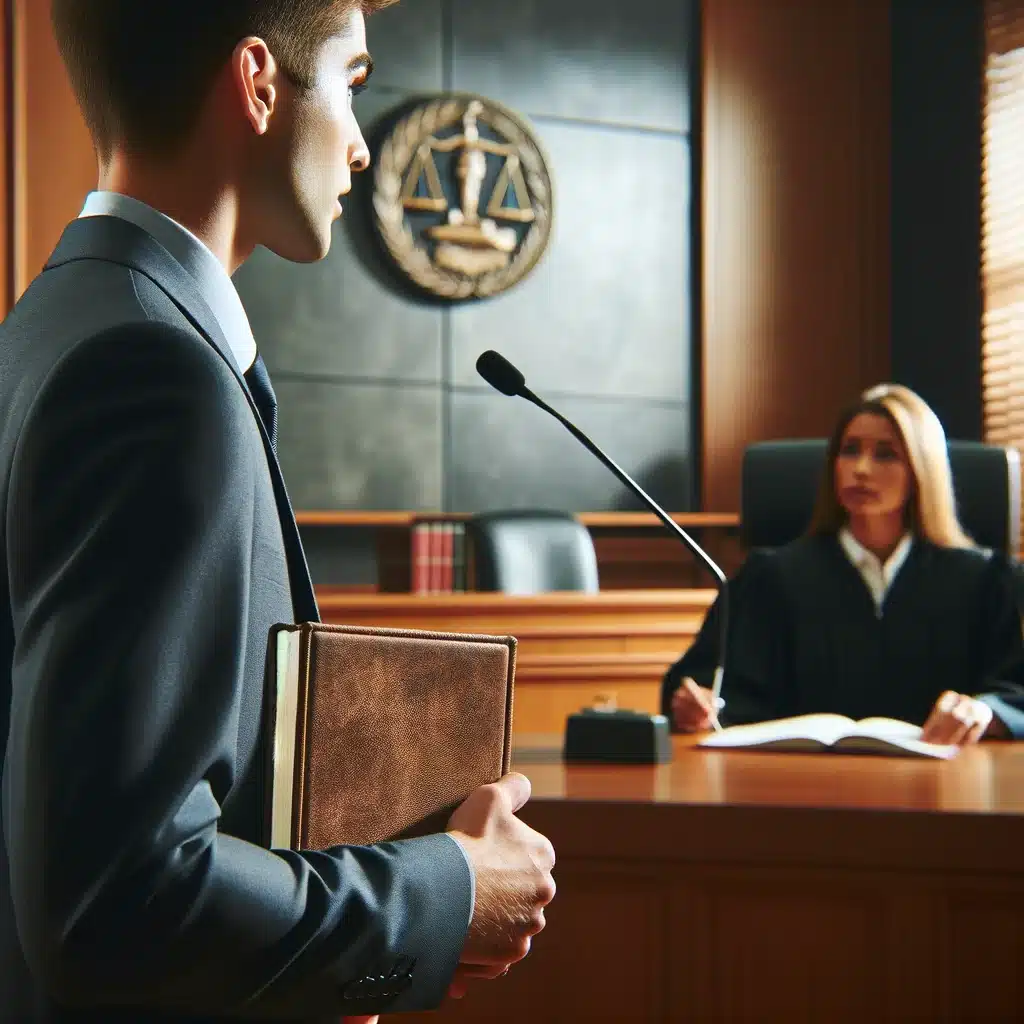
Mastering the Art of the Opening Statement for Your Child Custody Case
Navigating a Texas divorce trial is often described as one of the most complex and stressful experiences one can face. Picture yourself immersed in a process that’s lasted months, perhaps over a year, where every aspect of your life intertwines with the intricacies of legal proceedings. From mediation to informal negotiations with your spouse, from shared child custody to the temporary pause of your usual life rhythms, your journey has been relentless. When mediation fails to resolve the matter, the courtroom becomes the inevitable arena for finalizing your divorce. It’s rarely the preferred outcome, but it becomes the stark reality for many.
The Importance of Preparation and Knowledge
Facing this reality head-on, rather than shying away, is crucial. Gaining a rudimentary understanding of the trial process is invaluable, not just for mental preparedness but also to anticipate the twists and turns of the trial. While acquiring a law degree isn’t necessary, a foundational knowledge can be a game-changer. And yes, while you have an attorney to guide you through the mazes of this process, your role is far from passive.
The Critical Role of the Attorney-Client Relationship
Your attorney, an expert in courtroom strategies, cross-examination, and legal nuances, is your ally. Their expertise is invaluable, but so is your cooperation and honesty. The synergy between you and your attorney is pivotal. Inaccurate information can derail their strategy, leading to potential setbacks in the courtroom. Remember, the effectiveness of your attorney hinges on the accuracy and truthfulness of the information you provide.
Every piece of information, every shared detail shapes the path of your case. Your honesty is not just a moral obligation; it’s a strategic necessity that could significantly influence the outcome of your trial. Your active participation and transparency can turn the tide in your favor, ensuring that all the efforts poured into your case lead to a resolution that reflects your truth and needs.
What to Wear to Court?
When heading to court, attire is a topic that often perplexes many. While attorneys may not be fashion experts, their advice on courtroom dress is invaluable. Their experience in the legal setting gives them a unique perspective on what is appropriate. Remember, the goal is to make a positive impression, and dressing appropriately is a straightforward way to start.
Men’s Attire: Balancing Formality and Comfort
For men, the key is to opt for a look that’s formal yet comfortable. A dress shirt, slacks, and dress shoes strike the right balance. Wearing a suit is a good option if you own one and feel at ease in it. However, there’s no need to overstretch your budget or dress uncomfortably. Presentability matters more than luxury.
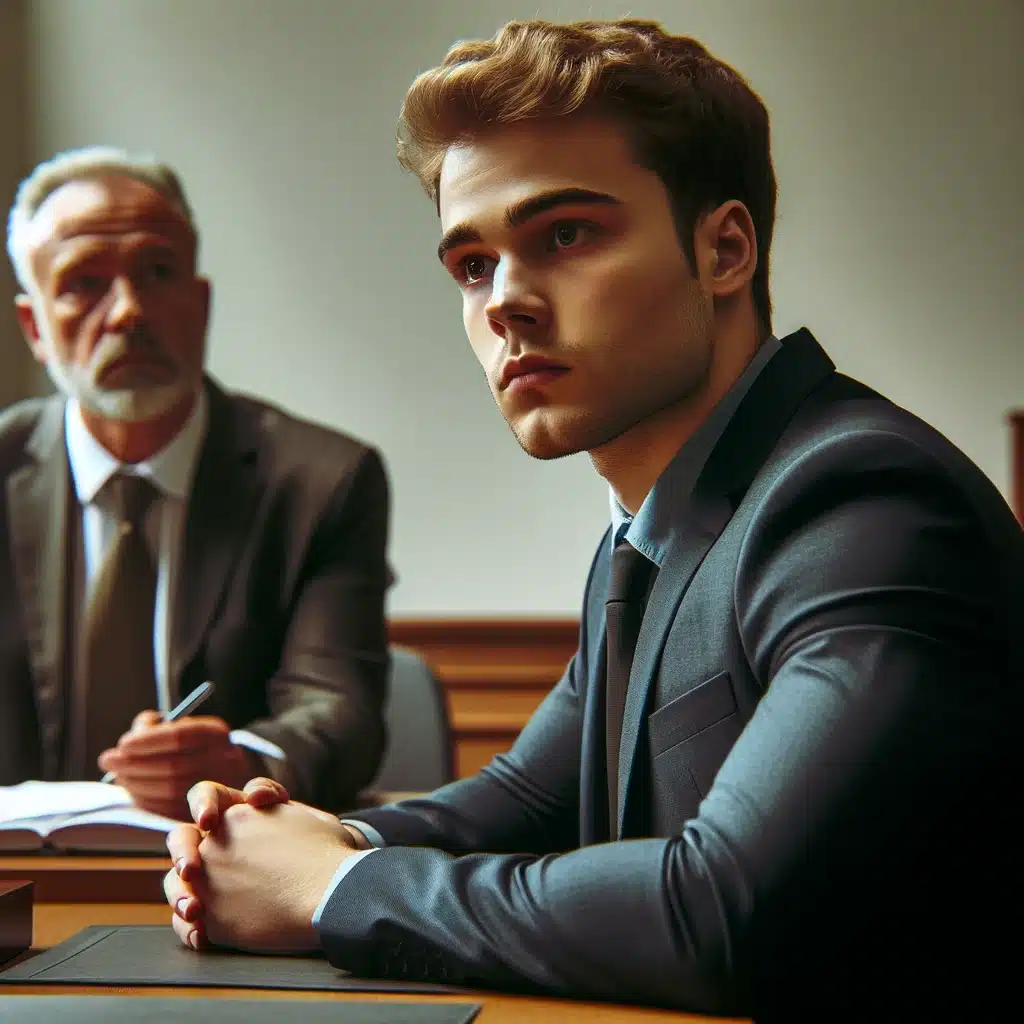
Women’s Attire: Embracing Conservatism over Fashion
Women should aim for conservative attire rather than high fashion. Avoid tight, short, or revealing clothing, and keep accessories and perfumes minimal. The focus should be on your case, not your fashion choices. Dress in a way that commands respect and keeps attention on the trial’s substance.
General Guidelines: Presentability and Practicality
For all, the general rule is simple: wear clothes that are clean, unwrinkled, and presentable. It’s unnecessary to invest heavily in attire for court appearances. Practical, neat clothing is far more suitable and economical.
If you have specific concerns about courtroom conduct or attire, discussing them with your attorney is wise. They can offer tailored advice that aligns with your case’s needs and courtroom expectations.
What Divorce Is and What the Opening Statement of a Divorce Trial Has to Do with the Marriage
Marriage symbolizes the union of two individuals, merging their lives based on shared values and mutual support. However, when this unity unravels, the complexity of a divorce trial often mirrors the intricacies of the marriage itself. Unwinding the entwined threads of a shared life is no small feat, and a divorce trial can become a necessary, albeit challenging, avenue to navigate this dissolution.
Many divorce cases find resolution through mediation, where a neutral third party assists in facilitating a mutual agreement. This process can be an emotional and logistical challenge, as it requires both parties to compromise and collaborate. However, when mediation falls short, the stark reality of a trial becomes the only path to a final settlement. This shift from potential mediation to a trial can be abrupt and disheartening, but it’s a part of the divorce landscape that sometimes cannot be avoided.
Facing the Reality of a Divorce Trial
The prospect of a divorce trial can be daunting, particularly as it involves having personal matters dissected in a courtroom setting. It’s an intense process where every aspect of shared life is scrutinized and debated. However, for many, this is an inevitable step in finalizing the end of a marital relationship. It’s not a scenario many anticipate when filing for divorce, but it’s a possibility that must be faced with resilience.
While delving into every detail of a divorce trial is beyond the scope of this discussion, understanding its fundamental elements is crucial. Being informed about the core aspects of a divorce trial equips you with the knowledge to prepare effectively. This preparation not only impacts the outcome of the trial but also helps in managing the emotional and psychological toll it can take on you and your family. Knowledge is power, and in the context of a divorce trial, it’s an indispensable ally.
Breaking Down the Opening Statement in a Texas Divorce Trial
The opening statement in a Texas divorce trial serves as a crucial moment to outline the significant issues of your case to the judge. It’s important to understand that these statements are not evidence, as attorneys are not testifying under oath. The opening statement is a strategic opportunity to clarify the key points about your case to the judge, setting the stage for the trial.
Expect your attorney to focus on setting a tone and presenting facts in the opening statement, rather than making persuasive arguments. This part of the trial is not about arguing your position but about laying a factual foundation. Understanding this approach helps in appreciating the strategy behind your attorney’s opening remarks.
Focus on Unresolved Issues
A critical aspect of the divorce trial is that it addresses the issues unresolved through mediation or informal negotiations. Even if you’ve settled most matters with your spouse, a trial might be necessary for one or two outstanding issues. Minimizing the trial’s scope through prior settlements can significantly reduce time, cost, and effort.
The Role of the Opening Statement in the Trial
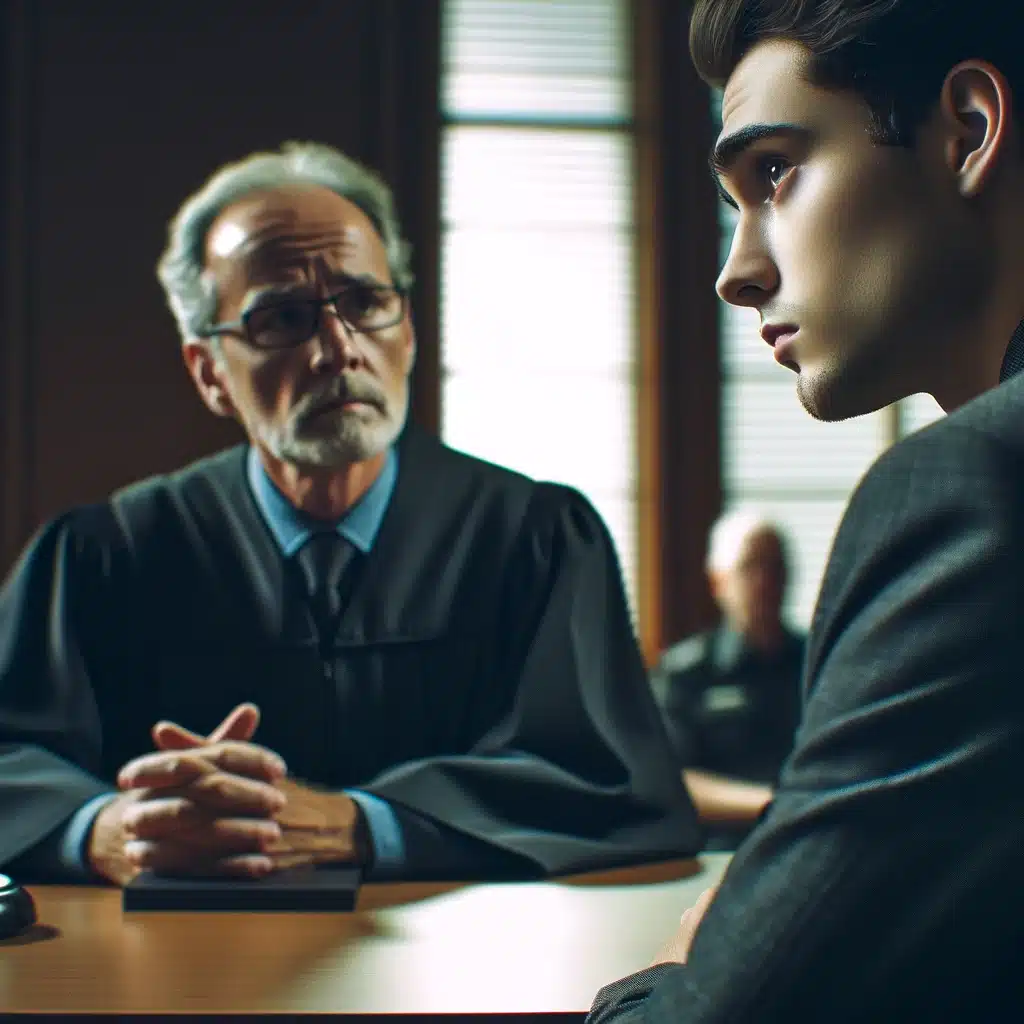
While opening statements are important, they contribute more to the overall feel of your case rather than its substance. Your attorney aims to present you as reasonable, rational, and professional. The opening statement sets the tone for the trial, rather than delivering substantive evidence or arguments.
The opening statement can also be a tool to humanize or make a person seem more approachable, especially in jury trials. This aspect is less critical in judge-led trials, as judges are typically more experienced and less influenced by such strategies compared to juries.
Introducing Unique Circumstances
Your attorney may use the opening statement to introduce unique or sensitive aspects of your case. This preemptive approach ensures the judge is not caught off guard during the trial and has a basic understanding of these elements from your perspective.
Your attorney’s manner in addressing the judge is also key. They will strive to be polite and respectful while balancing the need to engage the judge’s attention without making arguments or presenting evidence. Effectively changing or adjusting a judge’s perspective through the opening statement is a mark of a skilled attorney.
The opening statement in a Texas divorce trial serves as a crucial moment to outline the significant issues of your case to the judge. It’s important to understand that these statements are not evidence, as attorneys are not testifying under oath. The opening statement is a strategic opportunity to clarify the key points about your case to the judge, setting the stage for the trial.
Setting the Tone, Not Arguing the Case
Expect your attorney to focus on setting a tone and presenting facts in the opening statement, rather than making persuasive arguments. This part of the trial is not about arguing your position but about laying a factual foundation. Understanding this approach helps in appreciating the strategy behind your attorney’s opening remarks.
Focus on Unresolved Issues
A critical aspect of the divorce trial is that it addresses the issues unresolved through mediation or informal negotiations. Even if you’ve settled most matters with your spouse, a trial might be necessary for one or two outstanding issues. Minimizing the trial’s scope through prior settlements can significantly reduce time, cost, and effort.
While opening statements are important, they contribute more to the overall feel of your case rather than its substance. Your attorney aims to present you as reasonable, rational, and professional. The opening statement sets the tone for the trial, rather than delivering substantive evidence or arguments.
The opening statement can also be a tool to humanize or make a person seem more approachable, especially in jury trials. This aspect is less critical in judge-led trials, as judges are typically more experienced and less influenced by such strategies compared to juries.
Introducing Unique Circumstances
Your attorney may use the opening statement to introduce unique or sensitive aspects of your case. This preemptive approach ensures the judge is not caught off guard during the trial and has a basic understanding of these elements from your perspective.
Your attorney’s manner in addressing the judge is also key. They will strive to be polite and respectful while balancing the need to engage the judge’s attention without making arguments or presenting evidence. Effectively changing or adjusting a judge’s perspective through the opening statement is a mark of a skilled attorney.
Preparing for a Trial
The opening statement of your divorce trial will likely be the beginning of a stressful period of your life. To go through a divorce trial successfully means that you must consider what year’s ultimate goals are for the case and how you all want to accomplish them. This is done through meticulous planning before the divorce. It would help if you were prepared to work with your Attorney in advance of a trial so that you can present your case in the best possible fashion. It is best understood that if you are not preparing for your practice, your spouse is almost certainly.
When we Talk about going through a divorce trial, it is essential to note that A problem will likely be the most expensive part of your case. The amount of time and preparation that goes into a trial or almost certainly goes beyond the practice for all aspects of your case up to that point. However, this should not dissuade you from going through with a trial if it is the only way 2 conclude your case. Sometimes, it is impossible to resolve your matter in mediation or negotiation. With that said, however, the family courts can hear your case and render a decision.
Therefore, working alongside your Attorney to get ready for a trial is a good investment in completing this stage of your life and being able to move on to your life post-divorce. With as many options as there are in choosing a divorce attorney, your best bet is to begin interviewing lawyers before filing for divorce. The time we spend learning more about attorneys at this stage in the case could greatly benefit you down the line even as you prepare for a contested trial.
Importance of Evidence in a Child Custody Case
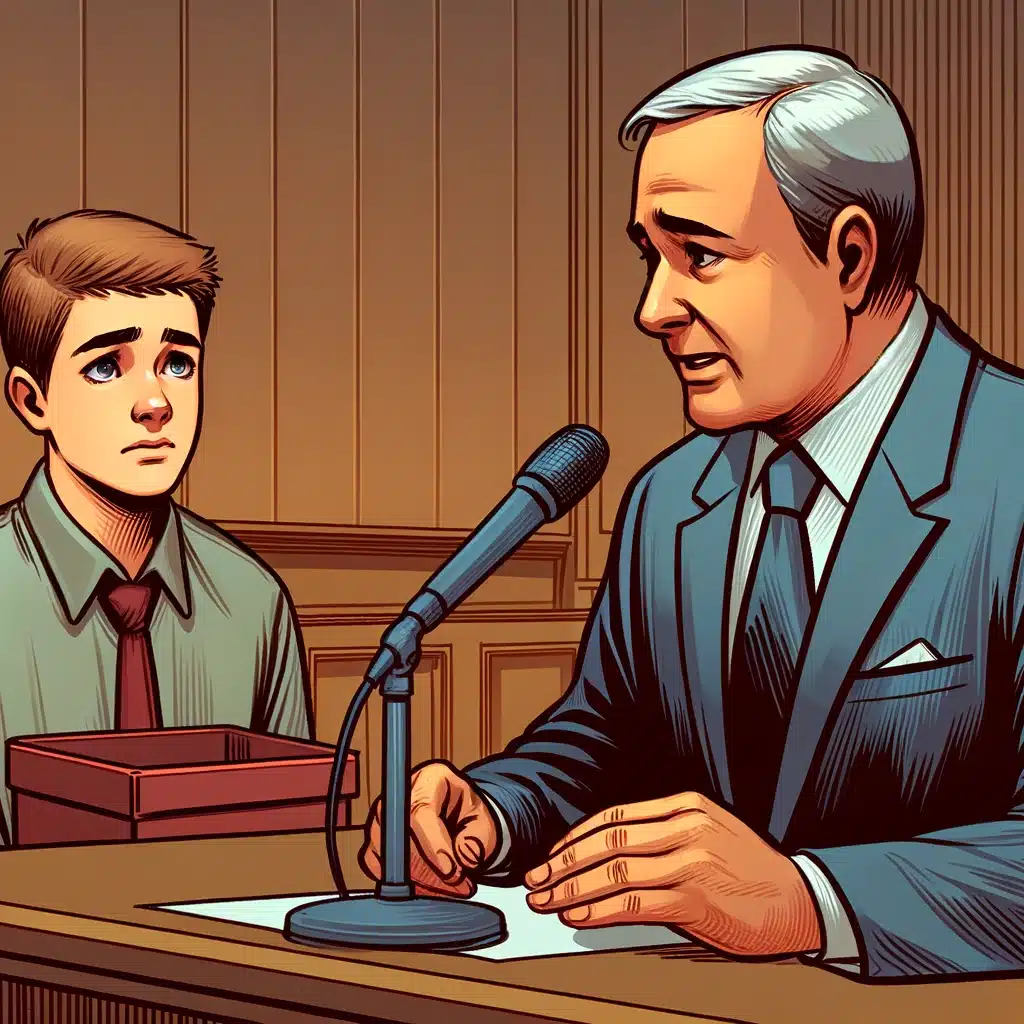
In a child custody case, the presentation of strong and compelling evidence holds significant importance as it directly influences the judge’s decision. The evidence provided by both parties plays a pivotal role in determining the child’s best interests and ensuring a fair outcome.
When presenting evidence, it is crucial to gather relevant and credible information that supports your position as a parent. This evidence can include various forms, such as documents, photographs, witness testimonies, and expert opinions. By presenting compelling evidence, you can demonstrate your ability to provide a stable and nurturing environment for your child.
Witness Testimony and Its Role in a Child Custody Case
Witness testimony holds immense value in a child custody case as it provides firsthand accounts and perspectives from individuals who have observed the parent-child relationship and interactions. These witnesses can include family members, friends, teachers, or childcare providers who can shed light on your parenting abilities and the bond you share with your child.
When selecting witnesses, it is crucial to choose individuals who can provide relevant and credible information to support your case. It is important to prepare your witnesses thoroughly to ensure they understand the purpose of their testimony and are ready to answer questions truthfully and effectively.
During the trial, witnesses will be questioned by both parties’ attorneys. The opposing party’s attorney may attempt to challenge the credibility or relevance of the witness testimony. Therefore, it is crucial to choose reliable witnesses and ensure they are well-prepared to withstand cross-examination.
Expert Witnesses and Their Role in a Child Custody Case
Expert witnesses bring specialized knowledge and professional opinions to a child custody case. They can provide valuable insights on specific issues related to child development, mental health, or any other relevant field. Expert witnesses can greatly influence the judge’s understanding of complex matters and help them make informed decisions regarding custody arrangements.
For example, a child psychologist may be called upon to evaluate the child’s emotional well-being and assess the impact of various custody arrangements on their overall development. Their expert opinion can carry substantial weight in the court’s decision-making process.
It is important to carefully select qualified and experienced expert witnesses who can effectively present their findings in a manner that is understandable to the court. The expert witness should be able to articulate their opinions clearly and provide objective insights that align with the child’s best interests.
Cross-Examination: Challenging Evidence and Credibility
Cross-examination is a critical aspect of a child custody trial, allowing attorneys to challenge the opposing party’s evidence and credibility. During cross-examination, the opposing party’s attorney will have the opportunity to question witnesses presented by the other party.
The purpose of cross-examination is to expose any inconsistencies, biases, or weaknesses in the opposing party’s case. Through strategic questioning, attorneys aim to undermine the credibility of the opposing party’s witnesses and cast doubt on their testimony.
Cross-examination requires careful preparation, as it involves anticipating potential lines of questioning and preparing witnesses to respond effectively. Witnesses should remain calm, focused, and answer truthfully while avoiding unnecessary elaboration that may be exploited by the opposing attorney.
Presentation of Documents in a Child Custody Case
The presentation of relevant documents is crucial in a child custody case. These documents can include financial records, communication logs, school reports, medical records, or any other documentation that supports your position as a responsible and capable parent.
|
Type of Document |
Purpose |
|---|---|
|
Financial Records |
Provide evidence of financial stability and ability to support the child. |
|
Communication Logs |
Demonstrate effective co-parenting, communication efforts, and cooperation. |
|
Child Custody Agreements |
Present existing or proposed custody arrangements, visitation schedules, and parenting plans. |
|
School Records |
Highlight the child’s academic progress, extracurricular activities, and any special needs. |
|
Medical Records |
Show the child’s medical history, ongoing treatments, and any specific health concerns. |
|
Character References |
Offer testimonials from trusted individuals who can speak to your parenting skills, character, and involvement in the child’s life. |
The Structure of an Opening Statement in a Child Custody Case
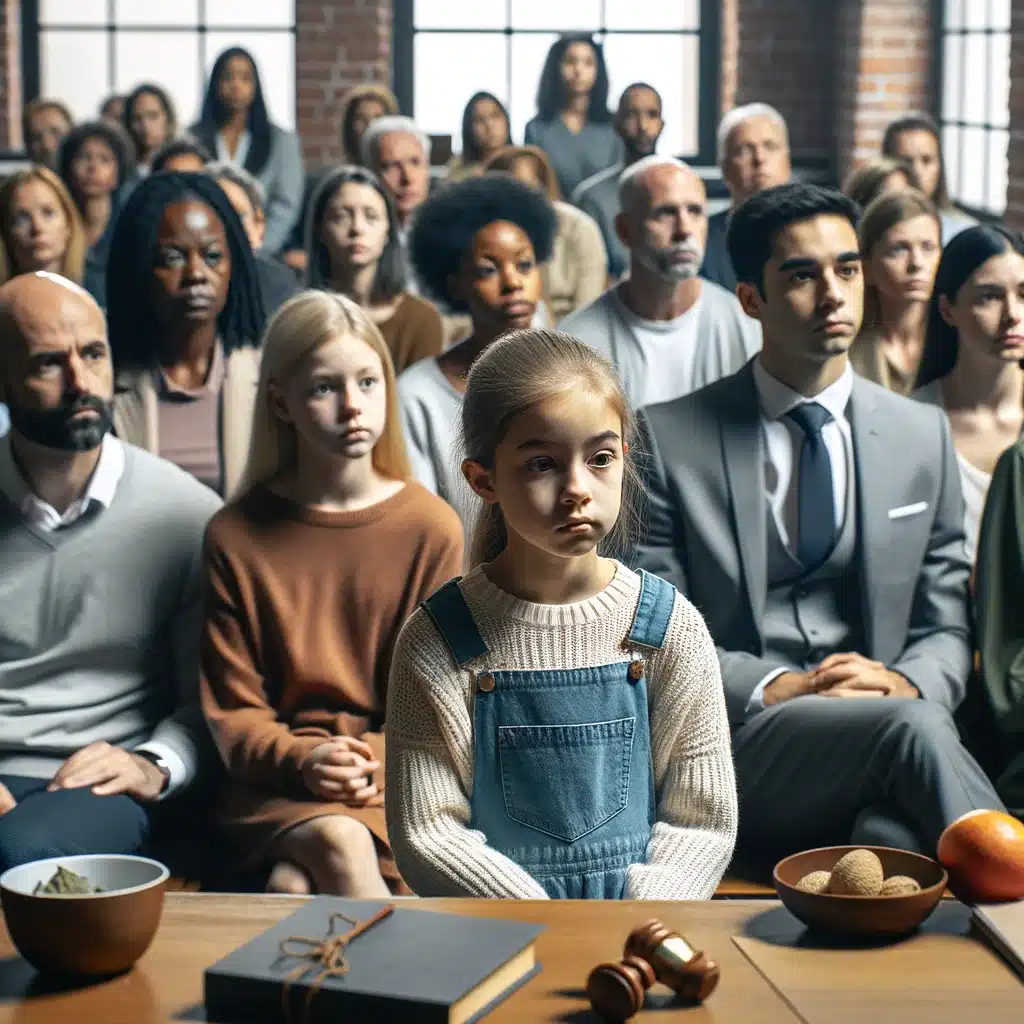
In a child custody case, an opening statement serves as an opportunity for each party’s attorney to provide an overview of their case and set the tone for the trial. The opening statement aims to capture the judge’s attention, establish credibility, and outline the key points that will be presented during the trial.
Typically, an opening statement in a child custody case follows a structured approach. It begins with an introduction where the attorney introduces themselves, their client, and provides a brief background of the case.
The attorney then presents a concise summary of the evidence they will present, emphasizing how it supports their client’s position and the child’s best interests. This may include highlighting specific witness testimonies, expert opinions, or critical documents that will be presented during the trial.
Throughout the opening statement, the attorney strives to create a compelling narrative by incorporating real-life examples, storytelling, and emotional appeal. They aim to convey their client’s strengths as a parent and the positive impact their custody arrangement would have on the child’s well-being.
It is important to note that the opening statement is not the time for making arguments or presenting evidence. Instead, it is an opportunity to create a favorable impression, provide an outline of the case, and engage the judge from the outset.
Closing Arguments: Persuasion and Summarizing the Case
Closing arguments are the final opportunity for attorneys to persuade the judge and summarize their case. It is a critical stage where attorneys strive to leave a lasting impression and convince the judge to rule in their client’s favor.
During closing arguments, attorneys summarize the key evidence and arguments presented throughout the trial, emphasizing how they align with their client’s position and the child’s best interests. They aim to create a compelling narrative that supports their case and refutes the opposing party’s claims.
Attorneys may use rhetorical techniques, storytelling, and emotional appeal to engage the judge and elicit empathy. They carefully craft their words to leave a lasting impact and solidify their client’s position as the most suitable custodial parent.
While persuasion is a primary goal during closing arguments, attorneys must also remain within the bounds of the evidence presented during the trial. It is essential to draw logical connections between the evidence and the desired outcome while avoiding unsupported or exaggerated claims.
By delivering a persuasive and comprehensive closing argument, attorneys seek to leave a favorable impression and increase the likelihood of a favorable custody determination.
The Burden of Proof in a Child Custody Case
In a child custody case, the burden of proof rests on the party seeking a particular custody arrangement or modification. Generally, the burden of proof refers to the responsibility of providing sufficient evidence to persuade the judge of the validity of a claim.
The burden of proof in a child custody case usually involves demonstrating that the proposed custody arrangement is in the child’s best interests. The party seeking custody must present evidence and arguments that show their ability to provide a safe, stable, and nurturing environment for the child’s physical and emotional well-being.
The burden of proof varies depending on the jurisdiction and the specific legal standards applied. In some cases, the burden may require a preponderance of evidence, meaning that the evidence presented is more convincing and has greater weight than the opposing party’s evidence. In other cases, a higher standard, such as clear and convincing evidence, may be required.
Understanding the burden of proof is crucial, as it guides the presentation of evidence, the development of legal arguments, and the overall strategy in a child custody case.
Rules of Courtroom Conduct in a Child Custody Case
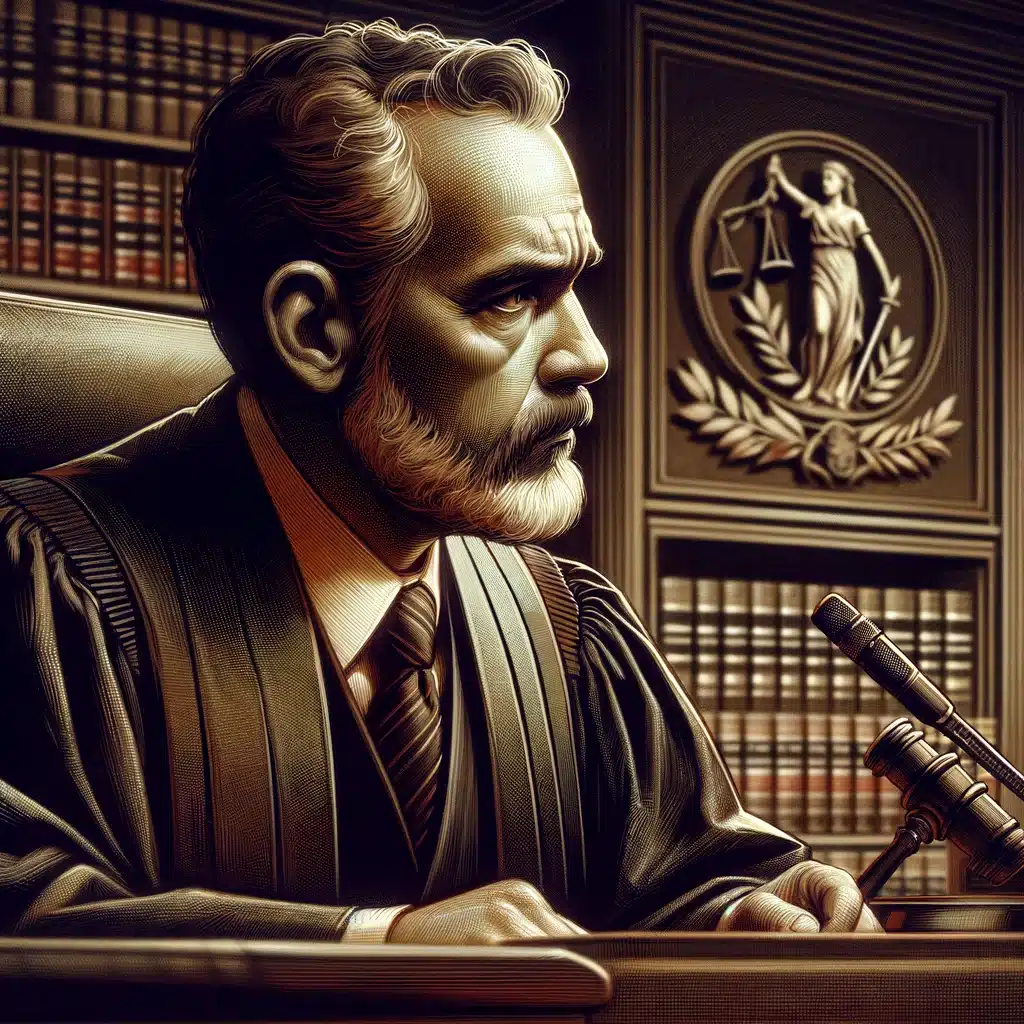
Proper courtroom conduct is essential in a child custody case to maintain respect for the judicial process and create a favorable impression. Following the rules of courtroom conduct ensures that the focus remains on the child’s best interests and the facts of the case.
When appearing in court, it is important to address the judge with respect, using appropriate titles such as “Your Honor” or “Judge [Last Name].” Attorneys should present themselves professionally, dressing in appropriate courtroom attire and maintaining a respectful demeanor.
During the proceedings, it is crucial to listen attentively, refrain from interrupting, and wait for the appropriate time to speak. Objections should be made in a respectful and timely manner, following the guidelines set by the court.
Additionally, it is important to be mindful of body language and facial expressions, as they can convey unintended messages to the judge. Maintaining composure, showing respect to all parties involved, and following the court’s instructions contribute to a positive courtroom atmosphere.
By adhering to the rules of courtroom conduct, individuals involved in a child custody case can create a favorable impression and demonstrate their commitment to the process.
Post-Trial Motions and Appeals in a Child Custody Case
After a child custody trial concludes, parties may have the option to file post-trial motions or pursue appeals if they are dissatisfied with the trial outcome. Post-trial motions seek to challenge or modify the trial court’s decision, while appeals involve seeking a review of the trial court’s decision by a higher court.
Post-trial motions typically focus on identifying legal errors made during the trial or presenting new evidence that was not previously available. These motions may request a modification of custody orders or a reconsideration of certain aspects of the case.
Appeals, on the other hand, involve presenting legal arguments to a higher court, seeking a review of the trial court’s decision. Appeals generally focus on alleged errors in the interpretation or application of the law, rather than reevaluating the evidence presented during the trial.
It is important to note that post-trial motions and appeals have specific deadlines and procedural requirements that must be followed. Consulting with an experienced attorney is crucial to understanding the options available, determining the likelihood of success, and navigating the complex post-trial phase effectively.
Settlement Negotiations in a Child Custody Case
Settlement negotiations offer an alternative approach to resolving a child custody case without the need for a trial. These negotiations involve discussions between the parties and their attorneys to reach a mutually agreeable custody arrangement.
The benefits of settlement negotiations include greater control over the outcome, reduced costs, and the ability to tailor the custody arrangement to the specific needs and dynamics of the family. By engaging in open and constructive discussions, parties can work towards finding common ground and creating a custody agreement that prioritizes the child’s best interests.
Settlement negotiations also provide an opportunity for parents to maintain a cooperative relationship, which can positively impact their ability to co-parent effectively in the future. By reaching a settlement, parties can avoid the potential stress, uncertainty, and adversarial nature of a trial.
However, it is important to approach settlement negotiations with realistic expectations and a willingness to compromise. Each party should consult with their attorney to understand their rights, obligations, and the potential consequences of different settlement options.
Preparing for Cross-Examination in a Child Custody Case
Cross-examination can be a challenging aspect of a child custody case, as it involves the opposing party’s attorney questioning witnesses presented by the other party. Adequate preparation is key to ensuring that witnesses are ready to effectively respond to challenging questions during cross-examination.
Preparing witnesses for cross-examination involves familiarizing them with potential lines of questioning and helping them develop strategies to respond truthfully and confidently. Witnesses should be encouraged to listen carefully to questions, take their time before responding, and provide concise and clear answers.
Additionally, witnesses should be aware that the opposing party’s attorney may attempt to provoke emotional reactions or create doubt regarding their credibility. It is crucial for witnesses to remain calm, composed, and focused on answering the questions truthfully.
Role-playing cross-examination scenarios with the assistance of an attorney can help witnesses become more comfortable with the process and better equipped to handle challenging questions.
By adequately preparing witnesses for cross-examination, parties can strengthen their case, present a more compelling narrative, and increase the likelihood of achieving a favorable outcome.
Emotional Challenges during a Child Custody Trial
Going through a child custody trial can be emotionally challenging for all parties involved. The high stakes, the examination of personal matters, and the potential impact on the parent-child relationship can contribute to significant stress, anxiety, and other emotions.
It is crucial to acknowledge and address these emotional challenges to ensure that they do not negatively affect the ability to present a strong case. Seeking emotional support from friends, family, or therapists can provide a helpful outlet for expressing and managing emotions throughout the trial.
Maintaining self-care practices, such as engaging in regular exercise, practicing mindfulness techniques, and pursuing hobbies or activities that bring joy, can also help manage stress and anxiety during this demanding period.
Furthermore, open communication with your attorney is essential. They can provide guidance, reassurance, and realistic expectations to help alleviate some of the emotional burdens associated with the trial.
By proactively addressing and managing emotional challenges, individuals involved in a child custody trial can navigate the process more effectively and make informed decisions that prioritize their child’s well-being.
The Role of the Judge in a Child Custody Case
The judge plays a critical role in a child custody case, as they are responsible for making decisions that serve the child’s best interests. The judge’s role involves carefully considering the evidence presented during the trial, assessing the credibility of witnesses, and applying relevant laws and legal standards.
The judge has the authority to determine custody arrangements, visitation schedules, and other important aspects of the child’s upbringing. Their decisions are based on a comprehensive analysis of the evidence and arguments presented by both parties.
It is important to approach interactions with the judge respectfully and professionally. Maintaining decorum, following courtroom etiquette, and addressing the judge appropriately are essential to create a favorable impression and demonstrate respect for the judicial process.
Understanding the judge’s role and being prepared to present a compelling case that aligns with the child’s best interests can greatly influence the outcome of a child custody trial.
Courtroom Procedures in a Child Custody Case
Familiarity with general courtroom procedures is essential when participating in a child custody case. By understanding the typical courtroom protocols, individuals can navigate the trial process more confidently and effectively.
Courtroom procedures often begin with the administration of oaths, where witnesses swear to tell the truth before providing testimony. Following the oaths, attorneys present their opening statements, setting the stage for the trial by providing an overview of their case.
During the trial, evidence is introduced through witness testimonies, document submissions, and expert opinions. Attorneys may present evidence through direct examination, followed by cross-examination from the opposing party’s attorney.
Throughout the trial, parties may raise objections if they believe the opposing party’s attorney is violating courtroom rules or introducing irrelevant or inadmissible evidence. Objections must be made promptly and adhere to the court’s guidelines.
Closing statements conclude the trial, where attorneys summarize their cases and attempt to persuade the judge to rule in their client’s favor. After considering all evidence and arguments, the judge will make a final determination.
Understanding these general courtroom procedures allows individuals involved in a child custody case to better navigate the trial process, present their case effectively, and ensure compliance with courtroom rules and expectations.
Final Thoughts
In conclusion, the opening statement in a divorce trial is a pivotal moment that sets the tone for the proceedings. It’s an opportunity for your attorney to clearly outline the key issues and introduce any unique circumstances of your case. While it’s not about presenting evidence or making arguments, the opening statement plays a crucial role in shaping the judge’s initial perception of your situation. Understanding its purpose and impact can help you and your attorney prepare effectively, ensuring that you start the trial on the right footing. Ultimately, a well-crafted opening statement lays the groundwork for the detailed arguments and evidence to follow, aiming to steer the trial toward a favorable outcome.
Ebook
![Adobe Stock 62844981[2]](https://www.bryanfagan.com/wp-content/uploads/2023/09/AdobeStock_628449812.jpeg) If you want to know more about what you can do, CLICK the button below to get your FREE E-book: “16 Steps to Help You Plan & Prepare for Your Texas Divorce”
If you want to know more about what you can do, CLICK the button below to get your FREE E-book: “16 Steps to Help You Plan & Prepare for Your Texas Divorce”
![Divorce Wasting Assets[4]](https://www.bryanfagan.com/wp-content/uploads/2023/09/Divorce-wasting-assets4.jpeg) If you want to know more about how to prepare, CLICK the button below to get your FREE E-book: “13 Dirty Tricks to Watch Out For in Your Texas Divorce, and How to Counter Them” Today!”
If you want to know more about how to prepare, CLICK the button below to get your FREE E-book: “13 Dirty Tricks to Watch Out For in Your Texas Divorce, and How to Counter Them” Today!”
Other Articles you may be interested in:
- How Can I Get My Spouse to Pay My Attorney’s Fees in a Texas Divorce?
- How am I going to Pay for My Texas Divorce?
- Should I Hide Money from my Spouse to Get Ready for my Texas Divorce?
- 7 Important Ways to Financially Prepare for Your Texas Divorce
- 6 Tips – On How to prepare for a Texas Divorce
- What are the Steps of a Contested Texas Divorce, and How can I Prepare for Them?
- Can I get child support while my Texas divorce is pending?
- What does it mean to go to trial in a Texas family law case?
- “Justice on Hold: Understanding Incompetency to Stand Trial
- What is a Mistrial?
- Evidence at Trials: Things Self Represented Litigants Should Know
- Avoiding the Drama: How to Navigate Divorce Without a Trial
- Pre-Trial matters in a Texas divorce case
- Why Choose a Jury trial in your Texas family law case?
Frequently Asked Questions
What is an example of an opening statement?
How do you write a good opening statement for court?
How do I write a letter of support for custody?
What does an opening statement look like in court?
What is a strong opening sentence example?
How do you write a strong opening sentence?
What are 3 things you should always include in an opening statement?
- A strong and attention-grabbing opening sentence that sets the tone and captures the judge’s or jury’s attention.
- A clear and concise outline of the main arguments, evidence, and witnesses you will present to support your case.
- An emotional and persuasive appeal that engages the judge or jury and establishes a connection between your client and the desired outcome.
What is an opening statement in court example defense?
How do you close an opening statement in court?
Bryan Fagan, a native of Atascocita, Texas, is a dedicated family law attorney inspired by John Grisham’s “The Pelican Brief.” He is the first lawyer in his family, which includes two adopted brothers. Bryan’s commitment to family is personal and professional; he cared for his grandmother with Alzheimer’s while completing his degree and attended the South Texas College of Law at night.
Married with three children, Bryan’s personal experiences enrich his understanding of family dynamics, which is central to his legal practice. He specializes in family law, offering innovative and efficient legal services. A certified member of the College of the State Bar of Texas, Bryan is part of an elite group of legal professionals committed to ongoing education and high-level expertise.
His legal practice covers divorce, custody disputes, property disputes, adoption, paternity, and mediation. Bryan is also experienced in drafting marital property agreements. He leads a team dedicated to complex family law cases and protecting families from false CPS allegations.
Based in Houston, Bryan is active in the Houston Family Law Sector of the Houston Bar Association and various family law groups in Texas. His deep understanding of family values and his professional dedication make him a compassionate advocate for families navigating Texas family law.




